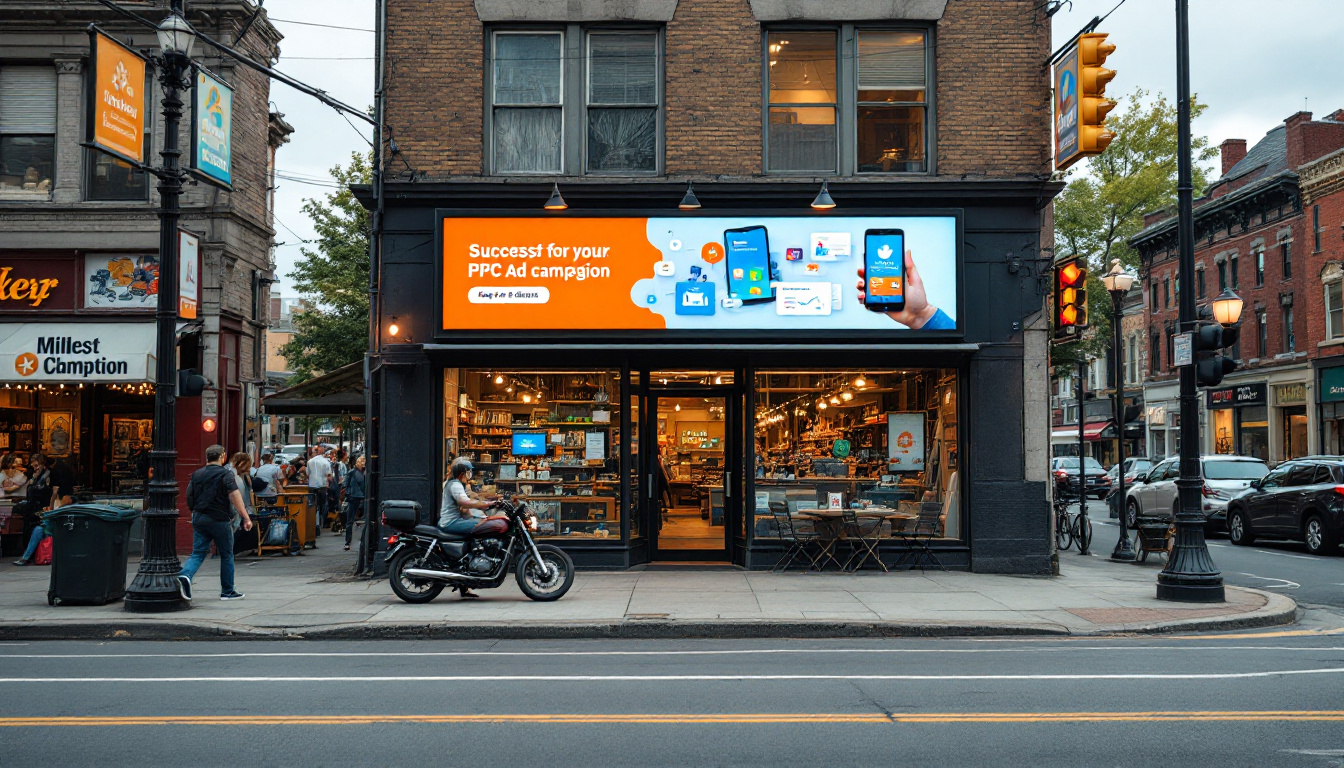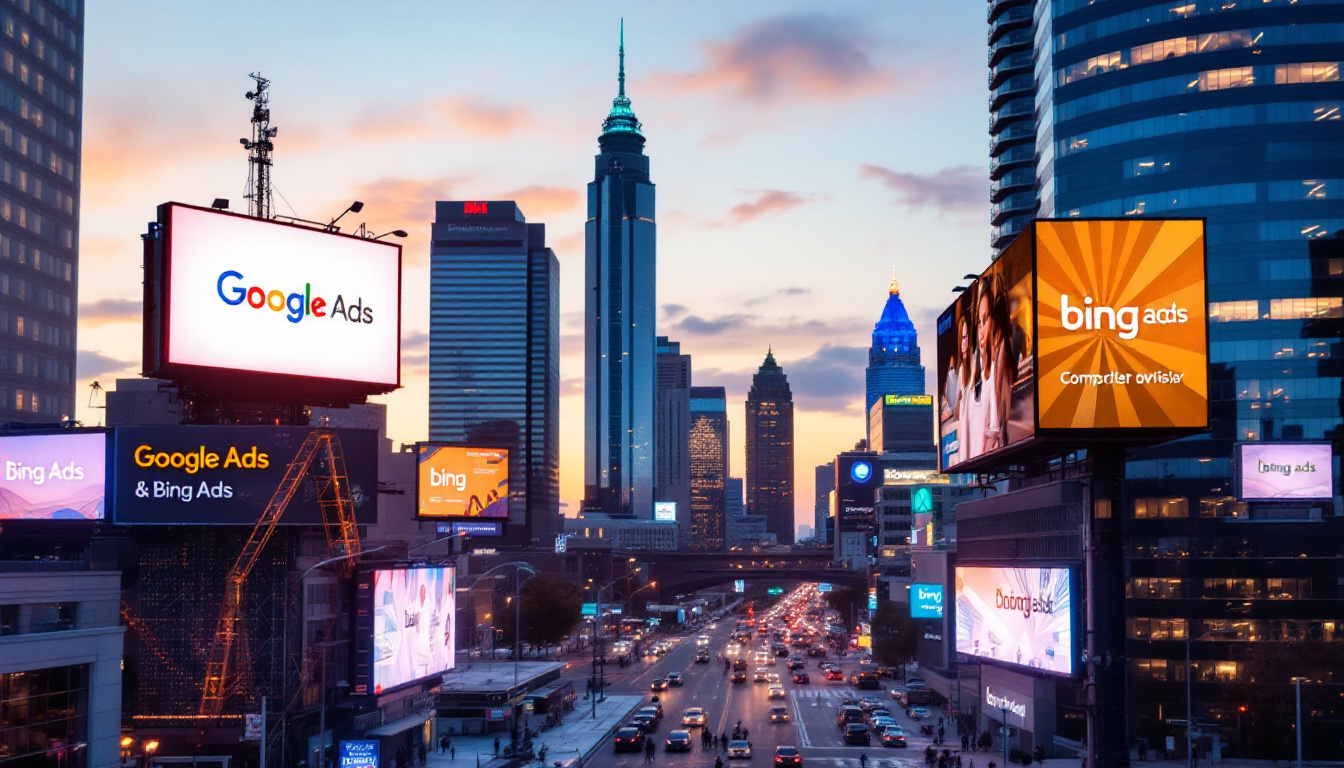Common Myths About PPC for Detroit, MI Businesses

Pay-per-click (PPC) advertising has emerged as a powerful strategy for businesses looking to enhance their online presence, especially in a dynamic market like Detroit, MI. Despite its potential, many myths surround PPC that can discourage local businesses from embracing this valuable marketing tool. In this article, we will debunk some of these common misconceptions and highlight the true benefits of PPC for businesses in the area.
Debunking the 'PPC is too expensive' myth
One of the most prevalent myths about PPC is that it is prohibitively expensive for small to medium-sized businesses. Many small business owners in Detroit might assume that they simply cannot afford to engage in PPC campaigns due to high costs. However, this belief is far from reality.
PPC advertising operates on a bidding system, allowing businesses to set their budgets and control their spending. This flexibility means that even small businesses can compete effectively against larger firms. Additionally, businesses can start with small budgets and gradually increase their spend as they see results, making PPC accessible for all types of businesses.
Moreover, the return on investment (ROI) for PPC can often outweigh the costs. With targeted campaigns, businesses can reach the right audience at the right time, ultimately leading to higher conversion rates and increased sales.
Furthermore, the ability to track and measure the performance of PPC campaigns in real-time is a significant advantage. Business owners can analyze which keywords are driving traffic and conversions, allowing them to optimize their strategies continually. This data-driven approach not only helps in refining ad spend but also in understanding customer behavior and preferences, which can be invaluable for future marketing efforts.
In addition to the financial benefits, PPC can also enhance brand visibility and awareness. Even if a user does not click on an ad, the mere exposure to a brand can influence their purchasing decisions later on. This is particularly important in competitive markets where brand recognition can be a deciding factor for consumers. By consistently appearing in search results, businesses can establish themselves as credible players in their industry, further solidifying their presence in the market.
Why PPC is not just for big companies
Another misconception is that PPC advertising is only advantageous for big corporations with substantial marketing budgets. While it's true that larger companies have more resources, PPC can be tailored to suit any business size, including local Detroit businesses striving to build their brand and reach new customers.
PPC platforms like Google Ads and Bing Ads provide options for users to target specific demographics, locations, and interests. This means that small businesses can effectively compete with larger companies without requiring the same level of financial investment. By crafting targeted ad campaigns that resonate with local audiences, smaller businesses can gain significant visibility and market share.
Additionally, PPC campaigns can be adjusted in real-time, allowing smaller companies to pivot strategies based on performance metrics. This adaptive nature of PPC makes it an ideal marketing strategy for any business looking to optimize their efforts.
Moreover, the ability to set daily or monthly budgets ensures that small businesses maintain control over their advertising expenditures. This flexibility allows them to experiment with different ad formats and keywords without the fear of overspending. For instance, a local coffee shop can run a limited-time promotion targeting nearby residents, effectively drawing in foot traffic while staying within budget. Such strategic use of PPC can lead to increased brand awareness and customer loyalty, which are crucial for small businesses in competitive markets.
Furthermore, the insights gained from PPC campaigns can provide invaluable data for small businesses. By analyzing click-through rates, conversion rates, and user behavior, businesses can better understand their audience's preferences and refine their marketing strategies accordingly. This data-driven approach not only enhances the effectiveness of future campaigns but also empowers small businesses to make informed decisions about product offerings and customer engagement tactics, ultimately contributing to their growth and success in the marketplace.
Understanding the role of analytics in PPC
Analytics play a crucial role in the effectiveness of any PPC campaign. Many business owners may overlook the importance of data when implementing PPC strategies, thinking that simply launching ads will suffice. However, understanding how to analyze campaign data is vital to achieving success.

PPC platforms provide a wealth of data on ad performance, including click-through rates, conversion rates, and customer demographics. By using this data, businesses can identify what works and what doesn't in their campaigns. This understanding allows for strategic adjustments to targeting, ad copy, and budget allocation.
Moreover, tools such as Google Analytics can help businesses track their web traffic and understand user behavior. Integrating analytics data into PPC strategies not only improves campaign performance but also informs other marketing efforts, leading to a more comprehensive understanding of customer engagement.
In addition to basic metrics, advanced analytics can delve deeper into user interactions, allowing marketers to segment audiences based on their behavior and preferences. For instance, by analyzing the time spent on a landing page or the paths users take before converting, businesses can tailor their ads to resonate more effectively with specific segments. This level of insight enables the creation of personalized ad experiences that can significantly enhance user engagement and conversion rates.
Furthermore, A/B testing is another vital aspect of analytics in PPC. By experimenting with different ad variations, such as headlines, images, and calls to action, marketers can gather data on which elements drive the best results. This iterative process not only refines the current campaigns but also builds a knowledge base for future advertising efforts. Over time, these insights can lead to more efficient spending and higher returns on investment, making analytics an indispensable tool in the PPC landscape.
How PPC can provide immediate results
One of the standout benefits of PPC advertising is its ability to generate immediate results. Unlike SEO, which often takes time to yield results, PPC allows businesses to appear in search engine results quickly after launching their campaigns.

This immediacy is especially beneficial for businesses in competitive Detroit markets. By utilizing targeted keywords and strategic ad placements, businesses can attract potential customers right when they are searching for relevant products or services.
Furthermore, the instant visibility provided by PPC allows companies to capitalize on seasonal trends, promotional events, or new product launches. This agility in the marketing approach enables businesses to maximize their advertising impact whenever necessary.
Moreover, PPC campaigns can be finely tuned and adjusted in real-time based on performance metrics. Advertisers can monitor click-through rates, conversion rates, and other key performance indicators almost instantaneously. This level of responsiveness means that businesses can allocate their budgets more effectively, shifting resources to the ads that are performing well while pausing or modifying those that are not. Such flexibility is a game changer, especially in fast-paced markets where consumer preferences can shift rapidly.
Additionally, PPC platforms often provide robust analytics tools that allow businesses to gain insights into customer behavior. By analyzing demographic data, geographic locations, and even the devices used by potential customers, businesses can tailor their advertising strategies to better meet the needs of their target audience. This data-driven approach not only enhances the effectiveness of PPC campaigns but also helps in building a more comprehensive understanding of the market landscape, ultimately leading to more informed business decisions.
PPC vs. SEO: Which is better for your business?
The debate between PPC and SEO is a common topic among marketers. While both strategies can drive traffic and conversions, they serve different purposes and can complement one another. For businesses in Detroit, understanding the nuances between the two can inform their overall marketing strategy.
- PPC: Provides immediate results and quick visibility. Great for targeted promotions and short-term campaigns.
- SEO: Focuses on long-term organic growth and can improve website authority and credibility over time.
Each business's needs will ultimately determine which strategy is more effective. Some businesses may benefit more from immediate traffic through PPC, while others may prefer to build a sustainable online presence through SEO. In many cases, a combination of both strategies can yield the best results.
PPC, or Pay-Per-Click advertising, allows businesses to bid for ad placement in search engines and social media platforms, ensuring that their ads appear prominently when potential customers search for relevant keywords. This immediacy can be particularly advantageous for businesses launching new products or services, as it allows them to test the waters and gauge market interest without the long wait associated with SEO. Furthermore, PPC campaigns can be finely tuned based on performance metrics, enabling marketers to allocate budgets effectively and maximize return on investment.
On the other hand, SEO, or Search Engine Optimization, is a more gradual process that involves optimizing a website's content and structure to improve its visibility in organic search results. This strategy not only enhances user experience but also builds trust with audiences over time. As search engines like Google continually update their algorithms, staying informed about the latest SEO best practices is crucial for businesses aiming to maintain their rankings. Additionally, investing in quality content creation and backlink strategies can significantly boost a site's authority, leading to sustained traffic and engagement long after initial efforts have been made.

As a Google Ads expert, I bring proven expertise in optimizing advertising campaigns to maximize ROI.
I specialize in sharing advanced strategies and targeted tips to refine Google Ads campaign management.
Committed to staying ahead of the latest trends and algorithms, I ensure that my clients receive cutting-edge solutions.
My passion for digital marketing and my ability to interpret data for strategic insights enable me to offer high-level consulting that aims to exceed expectations.






















